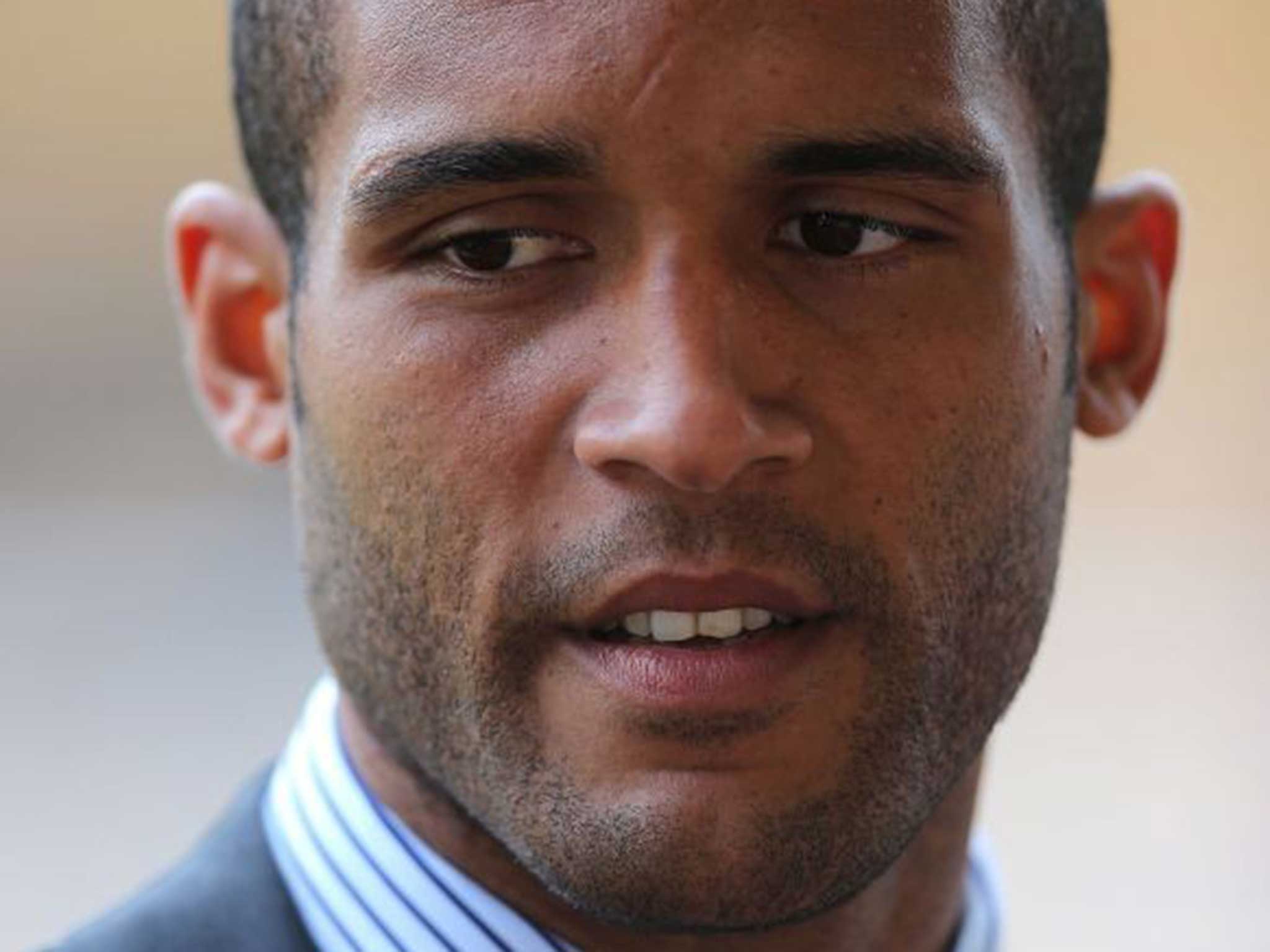Ian Herbert: The secret side of Clarke Carlisle that sparked Ralf Little's outrage
Although sympathy is rife for troubled footballer, ex-housemate is justified in raising his concerns

Your support helps us to tell the story
From reproductive rights to climate change to Big Tech, The Independent is on the ground when the story is developing. Whether it's investigating the financials of Elon Musk's pro-Trump PAC or producing our latest documentary, 'The A Word', which shines a light on the American women fighting for reproductive rights, we know how important it is to parse out the facts from the messaging.
At such a critical moment in US history, we need reporters on the ground. Your donation allows us to keep sending journalists to speak to both sides of the story.
The Independent is trusted by Americans across the entire political spectrum. And unlike many other quality news outlets, we choose not to lock Americans out of our reporting and analysis with paywalls. We believe quality journalism should be available to everyone, paid for by those who can afford it.
Your support makes all the difference.What drives Ralf Little, an actor whose contribution to social media reveals him as deep thinking and liberal, to tweet a message which suggests that Clarke Carlisle’s account of an attempt to take his own life must be viewed with deep scepticism?
Little’s tweet, in response to Carlisle telling The Sun that he felt no reason to live, was: “Oh dear. Looks like Clarke Carlisle’s going to get away with it – AGAIN,” adding: “I know the full story and it’s not what’s portrayed in the media.” Little went on to clarify his comments by saying he had little sympathy for a man who, albeit ill, keeps putting other people’s lives in danger with his reckless, alcohol-related behaviour.
Coming on #timetotalk day, designed to help those struggling to cope with mental illness – and Carlisle’s decision to step into the path of an oncoming lorry on the A64 on 22 December, was about as clear a sign of mental illness as they come – the timing and form of Little’s intervention were unfortunate. He later acknowledged that fact.
But for Little to feel such opprobrium towards Carlisle, with whom he once shared a house in west London, showed the tawdry, deeply unheroic character traits created by the addiction to drink that the former Burnley player has never managed to shake off.
To those of us who have encountered Carlisle amid the surface gloss of football, he is one of the best: gregarious, intelligent, always possessed of humility. He seemed genuinely overwhelmed to hear he had been rated eight out of 10 for his performance in a Championship play-off semi-final in 2009.

To others – one of whom tells me in the strongest possible terms that Little’s depiction of him as an abusive, unpleasant housemate is wholly accurate – there has always been another Carlisle story. It certainly reaches way beyond the details of the 35-year-old’s recent autobiography – the appropriately entitled You Don’t Know Me.
At Burnley, the scene of Carlisle’s greatest triumphs, the mojitos told the true story. The club were in the early stages of their transformation under Owen Coyle, in February 2008, when the squad went off to Dublin for some team bonding. Carlisle hit the mojitos, the white rum-based cocktail. Witnesses were astonished. The received wisdom was that Carlisle, who had arrived at Turf Moor the previous year, had put alcohol behind him.
The sense that the demons still stalked him were confirmed when Coyle’s side won their extraordinary promotion to the Premier League a year later. There are stories of a three-day bender. “There were times he’d buy me a drink when I had to take his wallet to pay for it,” says one who knew him at the time. “He wasn’t capable of paying.”
Burnley’s Christmas bashes, at a private bar in the Bar Code venue on the Lancashire town’s Hannah Street, seem to have been less eye-catching. But it was a miracle that he should professionally have held his own, alongside Steven Caldwell and Graham Alexander, as defensive linchpins of Coyle’s Premier League side. Carlisle, their man of the match in the play-off final, was always bright and early into training, known for picking up the doughnuts and coffees for the lads.
To assume that he had put his drinking behind him simply because he had attended the Sporting Chance clinic and because he was one of the most articulate of players – Professional Footballers’ Association chairman and Countdown contestant – is a gross oversimplification.
So is his autobiography, which describes his move from Lancashire to the bright lights and anonymity of Queen’s Park Rangers in 2000, as the event which put his drinking on to another level. The disappointment of the club’s 2003 Second Division play-off final defeat to Cardiff at the Millennium Stadium was a catalyst for dangerous drinking, he says, as was his reunion with a hard-drinking school friend discharged from the Paras.
His housemates in Beavor Grove, Chiswick, at this time – Little and three others – were a third “trigger” for booze, he suggests. He portrays himself as desperate to impress Little – “a very self-assured guy,” as he describes the actor in the book. “I wanted to impress him and everyone around us. He would often say that I shouldn’t really be going out. He was desperate to be a footballer and genuinely believed he was good enough… Knowing that I had something he wanted fuelled my actions. He even came in for training at the club one day and I must say he didn’t look out of place…”
Those who have fought alcoholism will know that Little and all the rest were Carlisle’s excuses for addiction. He couldn’t shake it. He tried to take his own life in 2004. When Carlisle discussed the issue with me in October 2009 he said that his Damascene moment came when he was ordered off the team bus by the then QPR manager Ian Holloway, and found himself propping up a bar awaiting his side’s result on the BBC videprinter 24 hours later.
If he had not beaten the demons while playing, then finishing that career was always likely to fuel them. Almost every player will tell you that there is no substitute for “the 3pm feeling”.
His intelligence created more opportunities than most ex-players find and he seized them. Less well known than his work as an ITV pundit was a series of impressive articles on Olympic hopefuls in the summer of 2011.
He was thought of as a responsive PFA chairman, despite some black and minority ethnic players wanting more activism from him. That led to a very public row with Rio and Anton Ferdinand.
He had been in the Turf Moor press room doing media work, just before a drink-drive charge and the decision to try to take his life again, in December. He was talking on the theme of antenatal depression on Radio 5 Live that day. Some wondered on hearing that whether this man was trying a little too hard to be a font of wisdom.
The considerable sum he has received for his story from The Sun will not compensate him for the recent loss of a good contract as an ITV analyst. His tenure as PFA chairman has ended too. When the second part of his account of the last few months – his wife Gemma’s story – has been told in The Sun today and the attention fades, he will be left with the same, unforgiving fight faced by so many struggling with the same demons. Ralf Little’s words pierced football’s surface gloss. Some day, Carlisle may thank him for them.
Join our commenting forum
Join thought-provoking conversations, follow other Independent readers and see their replies
Comments